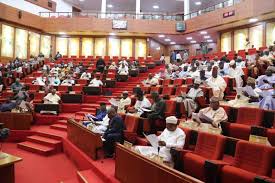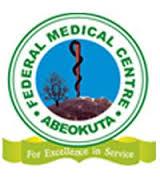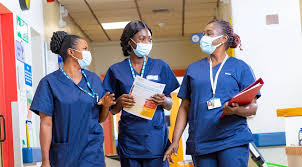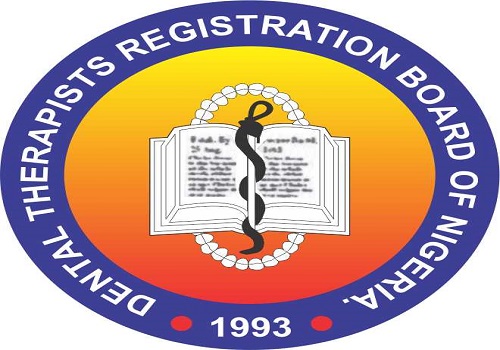The Strengthening Integrated Delivery of HIV/AIDS Services (SIDHAS) is a USAID funded project in Nigeria implemented by a consortium of partners. Howard University and Continuing Education (HUPACE) is one of the core partners with the mandate to strengthen the pharmacy components of the project through capacity building, expanding and strengthening pharmacy systems and entrenching long term sustainability within our National Health Systems. As part of the preparation for the Test and Start and Differentiated care, an orientation was held with stakeholders on antiretroviral drugs (ARV) refill in the Community Pharmacies.
The stakeholders present at the orientation included ,The Pharmaceutical Society of Nigeria(PSN), National President, Pharm Ahmed I.Yakasai, PSN National Secretary Pharm Gbolagade Iyiola, ACPN National ChairmanPharm Alkali Albert, PSN National Treasurer Pharm. Duru Emeka, ACPN Lagos ChairmanPharm (Mrs.) Abiola Paul- Ozieh, The Director of Pharmaceutical Services Lagos State Ministry of Health, Dr (Mrs.) Adejumo, Head Of Pharmaceutical Services Primary Health Care BoardPharm (Mrs.) Shakirat Adeosun, Representative of Director of Pharmaceutical services(DPS), Health Service Commission (HSC)Deputy Director Lagos State Health Service Commission Pharm (Mrs.) Modupe Bakare, the Logistics Management Coordinating Unit(LMCU) Coordinator, Pharm Adedapo Margaret. ART coordinators from the Ajeromi and Sango PHCs, Laboratory scientist, Pharmacists from the health facilities, community Pharmacists Community Based Organization (CBOs) and People living with HIV (PLHIV). The FHI 360 team from Lagos State Office (LSO) and Country Office were also present.
The LSO State Program Manager (SPM) gave the opening remarks, he welcomed all the state holders and emphasized team work.
In his remarks, the PSN president emphasized the need for collaboration between all health care providers, he appealed to everyone to always put the patient as priority. He assured his continuous support. He said he was happy to be at the ARV refill orientation and such is happening in his own tenure as the PSN president. He encouraged everyone to take it as service to humanity and quality service must be delivered so as to improve the quality of life of people. In her remarks, the DPS, MOH said there is full approval from the Lagos State Ministry of Health for the ARV refill program. She mentioned that the stakeholders can go ahead. She appreciated the efforts of the private sector to improve health service in Lagos State as the public sector cannot do it alone. While seeking for the support of the stake holders, she encouraged all to embrace the new innovation and strategies to improve the health sector.
The Deputy Project Director HUPACE, Pharm Seun Asieba took the presentation on ARVS Refill concept. The Associate Director Strategic Information HUPACE/SIDHAS Project Dr Kenneth Agu, gave presentation on flow, roles and responsibilities. A total of 82 participants (48 females, 34 males) attended the orientation meeting which took place at Lagos State Chamber of Commerce and Industry (LCCI), Conference Hall, Alausa, Ikeja on 21st July 2016. At the end of the orientation, participants were empowered with the right information on ART refill and they welcomed the idea wholeheartedly The benefits expected from the ARV refill program include decreased client load at the hubs, improved client retention, improved medication adherence and ultimately increased client satisfaction.
Goal and Objectives:
* To sensitize stakeholders on Test and start and ART refill in the community.
* The equip stake holders on the right information on ART refill in the community.
* To erase all concerns on drug safety and confidentiality.
* To discuss the roles of the different stake holders in refill of ARVs in the community.
Description of Activities
Community Pharmacy ARV Refill Concept
An overview on the community Pharmacy ARVS Refill concept lecture was given by the Deputy Project Director (DPD) HU-PACE, Pharm Seun Asieba.
She discussed the mandate and achievements of HUPACE so far.
She explained that the need for the Community ARV refill program arose due to overburdened ART sites, poor client satisfaction, long waiting time at the facility.
However, clients will only be devolved for ART refill service in Community Pharmacies and not alienated from laboratory services and other clinical services at the facility.
The eligibility criteria for both the clients and the community pharmacies to be used were discussed.
On the part of the CPs, she said it is imperative that CPs are trained on Pharmaceutical care concepts and documentation techniques.
The three basic approaches to the community ARV refill project where highlighted. They include Pre-implementation (which involves stakeholder’s orientation, mapping and Identification of CPs & Health facilities, identification and devolvement of participating clients, Community Pharmacists (CPs) and Health Facilities
The benefits expected from the ARV refill program include decreased client load at the hubs, improved client retention, improved medication adherence and ultimately increased client satisfaction.
She also gave a report of the preliminary findings conducted from the baseline assessment, Provider’s perspective and client’s perspective. It showed that a large percentage of community pharmacists are ready to give refill to clients. Health care providers are also willing to let their clients take refills from community pharmacists and the clients are also willing especially as some spend a lot of time at the facility and some have to take days off work.
.jpg) Concerns with Intervention
Concerns with Intervention The DPD said the areas of concern which has been raised with respect to this intervention includes; commodity security, stigma & discrimination, quality of care, adherence & retention, Fee for service, client’s rights & satisfaction, CP continued participation, M&E concerns, sustainability.
She addressed all these concerns and mentioned that the CPs to be used will be properly screened.
Flow, Roles and Responsibilities
Dr Kenneth Agu, the Assistant Director Strategic Information HU-PACE gave a lecture on flow, roles and responsibilities.
The flow will be from the pre implementation phase to the implementation phase. This will take place only in the scaled up LGAs.
Due to the client load, Ajeromi GH, Randle GH and Sango PHC are the proposed facilities for the phase 1 of the Community Pharmacists ARV Refill Program(CPARP)
Only four CPs will serve as spokes to the Hub and maximum number of clients devolved per CP is 100 (on an average of 5 clients per day).
The stakeholders involved in the CPARP are Government of Nigeria (GON) [MOH/SACA/SAPC/HSC], the facilities, Clients, Community Based Organizations {CBOs}, CPs and SIDHAS.
The expected roles of the stakeholders which includes: CPs, Facility team, Clients, GON supervisors, Laboratory scientists, clinicians, M&E personnel and the Pharmacists in the CPARP were extensively explained.
Documentation Tools
The importance of documentation was emphasized and the popular saying “if it is not documented, then it’s not done” was mentioned to remind all. The documentation tools include the following; devolvement/encounter form, Pharmacy order forms, pharmacy daily worksheets & monthly summary form (MSF), CPARP longitudinal register, appointment diary, chronic care screening tool, Pharmacovigilance reporting form, contact tracking tools, bin cards, transfer & return forms. He explained the need for prompt report generation and submission as logistics is very important in commodity supply. There will also be chronic care screening for all clients and clients with chronic conditions will be referred back to the facilities.
The Inform Consent Form was projected and the various parts of the form explained
Questions/Answers/Discussions
Some questions about the program were asked, concerns raised and answers were given.
* Pharm Agulanna (ACPN Apapa Zone chairman) asked how the four priority LGAs were chosen. In response, the LGAs were were chosen based on prevalence and the high level of reactive clients.
* A support group member from Ajeromi LGA talked about her status as a PLHIV. She gave her success story on how she has been able to overcome the stigma that comes with the disease. She went further to raise concerns about the involvement of CPs in this project and if the clients sent to them would not be stigmatized and exploited. Her fears were allayed by informing her that Pharmacists were men of Honor and have ethical training that guides their practice. The project has been standardized in such a way that CPs will be continuously supervised at every point in the project, so nothing to worry about in that regards. The chairman of ACPN Ajeromi zone also reassured her that CPs have been in the TB/HIV project for over 10 years of success stories and activities which they have successfully participated in and that issues bothering on confidentiality and stigmatization has never been raised so she can rest assured that no pharmacist involved in this project will compromise confidentiality of the clients.
* A CBO representative, Mrs. Wunmi Onuoha from HUFFPED CBO raised concerns on the chronic care screening by the CPs. Explanations was provided that tools have been designed (which are subject to continuous review) to guide the CPs in screening of clients that will be attached to their premise for the benefit of this project, He said that the tools have been designed such that questions related to only opportunistic infections (OIs) and Comorbidities e.g. HTN, DM etc. in PLWH will be asked by the CPs and that laboratory screening will not be carried out by the CPs. However, he said the CPs are expected to make interventions from the questions asked and thus refer any made to the facility attached to them through laid down referral processes.
* The ACPN Chairman Surulere Zone also reassured the support group member who raised concerns about stigma and exploitation on the part of the CPs that no such thing will happen. She gave success stories from the partnership of CPs with different Non-Governmental Organizations (NGOs) which she has been privileged to be a part of and so far so good.
* Question was asked on the meaning of audio visual counselling method mentioned in the lecture and she also asked if the CBOs will be attached to the CPs in the course of this project. The DPD explained that Audio Visual counselling bothers on the comfort and confidentiality technique applied by the CPs with respect to the client assessing her refills in the premise and how it is important that the Pharmacist must always apply Pharmaceutical care (PC) in dealing with these clients. The client should not be seen and heard by those outside during counselling sessions.
* Olumide from JAKIN CBO gave an insight on the roles of CBOs in the project. He said that he expected that when it starts, the CBOs will be attached to the CPs to aid them in tracking defaulting clients and reach out to clients in the communities, thus ensuring retention of clients and participation of the CPs in the community support group activities. He also threw more light on the roles of the CBOs in the SIDHAS project. Before concluding, Mr. Olumide called the attention of Dr Kenneth to his slides when he was lecturing on the expected roles of stakeholders in this project. He noted that the activities of CBOs were not included as part of the stakeholders in the slides even though they were mentioned in previous slides. Dr Ken answered him by alerting him to the fact that during the course of his lecture on the roles of stakeholders that he emphasized on the roles of the CBOs even if they were not included in his slides and that he also mentioned that his lecture series were subject to review and that he has noted Mr. Olumide’s concern and promised it will be included in the next lecture series.
* Rita a representative of BLYSON CBO covering Agege LGA asked about the expansion with respect to inflow of clients in the CPs if eventually the project is successful, her concern was on CPs getting overwhelmed after some time just like the Hospitals due to increase in client number. Dr Ken answered her question by referring her back to his slides where he stressed that the maximum number of clients that will be allotted to each CP is 100 with an average of 5 clients per day.
* Pharm Jerome Nwokoro appealed to the conscience of the CPs that will be involved with this project to remember that whatever they do, they are representing the entire Pharmacy profession in the country and so they should avoid cutting corners so as not to put the profession in a bad light. He then asked about what CPs should do if in the course of this project, a client assigned to a Pharmacist comes in on his/her appointment day and starts lamenting about lack of funds and not being able to meet the stipulated #1000 bimonthly charge. Dr Ken answered him by saying that even in the course of work as CPs, there are clients who come in to beg one favor or the other and the Pharmacist is able to assist in his or her own way, so if issues like that arise, the CP should use his/her discretion to solve such issues but that they should be careful not to allow themselves be exploited by the clients. He also referred back to the lecture series given by the DPD where some CP respondents said they’ll be willing to render service without any form of remuneration.
* Onuoha a member of the CBO team asked how long the Phase I of this project will last before Phase II will be started and Dr Ken answered by saying that Phase I has started already with three (3) LGAs which are; Ajeromi, Agege and Surulere. He said Apapa LGA will join in the Phase II of the project as they are still carrying out pilot study in the 3 LGAs.
* Lanre Olanipekun (from M&E unit Ajeromi GH) asked if the clients’ folders will be removed from the Hospitals to the CPs or if they’ll be left in the Hospitals. He also raised concerns about documentation and monthly summary forms (MSF) on how they’ll be submitted on time and finally about the movement of the clients to the CPs i.e. the selection process. Dr Ken answered first by telling him that the client’s folders will not be moved out of the facilities, that the CPs will be trained and will sign a consent form that they are ready to do the paper work involved in the project and finally, he said that the movement of clients will be based on selection by the clients while also referring the house back to the lecture series given by the DPD where she gave conditions on selection of clients and refreshing our memories.
* Pharm Margaret Adedapo (the Coordinator of Lagos State Logistics and Drug Supply chain management) was given the floor to address the house on the importance of timely submission of reports. She appealed to both the Pharmacists and Lab Scientists present to ensure accurate and timely report and also on the need for both parties to work together so as to meet up with report collation and not have out of stocks of commodities in their facilities as these will have negative effect on the client and the goals of the whole project will not be met.
* Pharm Okwah-Ameh Kate (Vice chairman, ACPN Ajeromi zone) spoke passionately about the roles of CPs in Public Health service delivery, the challenges they have encountered and how they have surmounted them. She advised her colleagues in the CP practice to ensure 24hour documentation so as to avoid pile ups and crash reporting.
* The representative of the DPS HSC, Pharm Bakare asked about the training of CPs that will be devolved in this project as she also expressed her fears. Dr Ken reassured her that just as he has been saying, the CPs devolved in this project will have continuous monitoring, given proper orientations and that they will also be trained at the facilities to understand the workings of the documentation process and all the designed tools.
* Pharm Mrs. Adeosun (Head of Pharmacy services PHC Board Lagos State) seized the opportunity to emphasize on the importance of documentation and early submission of reports.
* Pharm Tolulope Ajayi also spoke about the roles of CPs with respect to this project
ABUJA: Training Schedule for Basic Life Support BLS, Pediatric Advanced Life Support (PALS), Advanced Cardiovascular Life Support ACLS, First Aid, CPR, AED
PORTHARCOURT: Training Schedule for Basic Life Support BLS, Pediatric Advanced Life Support (PALS), Advanced Cardiovascular Life Support ACLS, First Aid, CPR, AED
LAGOS: Training Schedule for Basic Life Support BLS, Pediatric Advanced Life Support (PALS), Advanced Cardiovascular Life Support ACLS, First Aid, CPR, AED





